I had my annual physical on Friday. My doctor asked me if I got a lot of exercise, and I said that I did at this time of year. I told her that if there’s snow in the air or on the ground, I’m going to hit the trail if I can. She replied that I was the complete opposite of all her other patients. So I dedicate this post to her patients, because perhaps if they joined me for one of my walks, they’d see how wonderful the snow can be.
The beginning of the trail always looks inviting to me, but even more so in the snow. The two trees form a sort of portal, and the snow makes it seem like a new and magical land lies beyond.
Once in the woods, I paused to marvel at the lacing of snowy branches overhead. Here again the snow had transformed the mundane into the magical.
Why do the beeches keep their leaves during the winter? I do not know, but I love that they do.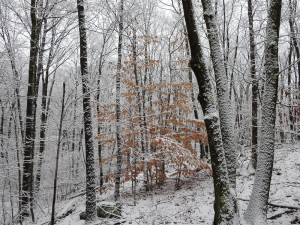
They say, “Be the first to make tracks in the snow.” Here I had reached an area where the riders sometimes go, but there were no tracks yet. I was the first!
I stopped by the old quarry (which I mentioned in yesterday’s post) and I was amazed by this big pine. How many times had I seen it without noticing it? The snow had worked its magic again, this time to reveal. It was the contrast of the snow against the green of the pine that caught my eye.
I think the snow also helped me to spot this old hornet’s nest.
This is the second nest I’ve seen this year that was ripped at the bottom. I wondered what could cause that. I looked it up as I was writing this post, and I read that some animals, like raccoons, skunks, and bears, will rip the nest open during the fall to eat the larvae. Perhaps that’s what happened here. I also found, by the way, that a hornet’s (or wasp’s) nest is called a “vespiary.” Vespiary! I might have thought it was a place to hold vespers, or (jokingly) a garage for a Vespa scooter (I did not know that “vespa” is the Latin word for “hornet”).
So not only did I have wonderful walk, but I also learned a new word. It was exercise for both the body and the brain. My doctor would be pleased!

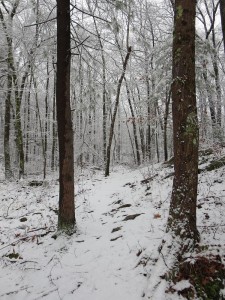
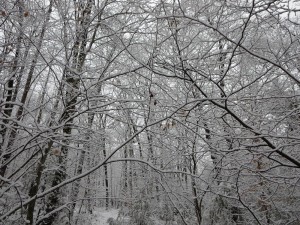
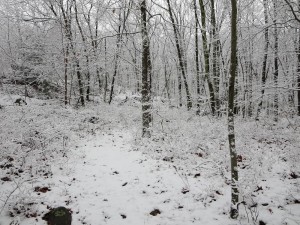
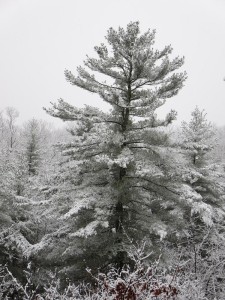
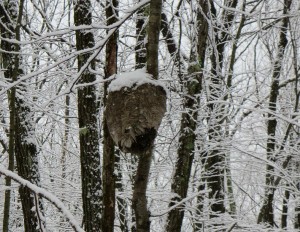
Hornet, eh? Fascinating!
Fascinating, if not perhaps 100% accurate. “Vespa” is probably Latin for “wasp,” not hornet, though a hornet is a wasp. The Internet sometimes confuses. And I am easily confused.